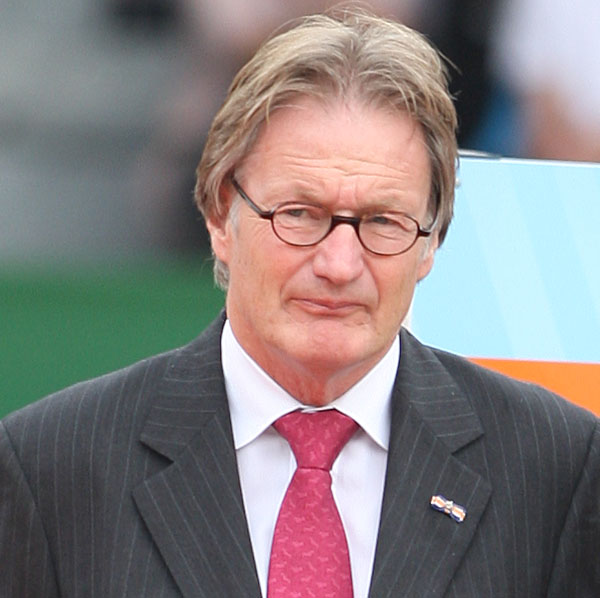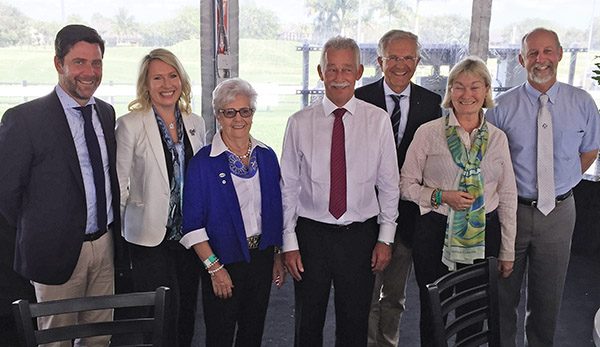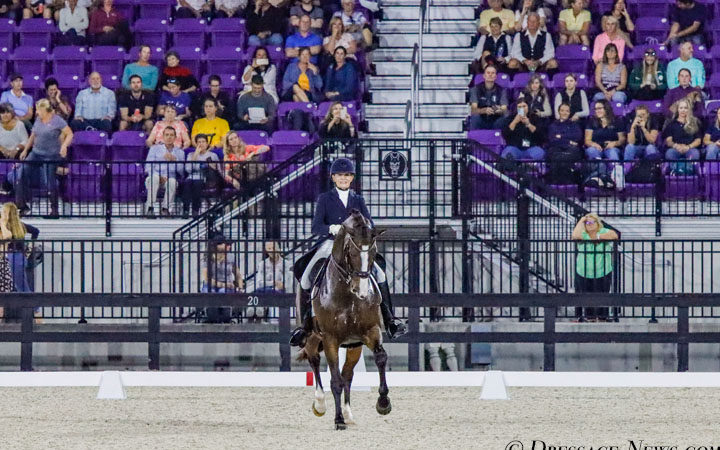FEI Dressage Judging Report Presented, Timetable Meets Resistance
8 years ago StraightArrow Comments Off on FEI Dressage Judging Report Presented, Timetable Meets Resistance

LAUSANNE, Switzerland, April 11, 2017–Proposals to implement a revamped method of dressage judging by 2019, more than a year before the Tokyo Olympics, met with resistance from national federations as well as judges at the International Equestrian Federation (FEI) Sports Forum Tuesday.
The first report by a Dressage Judging Working Group set up by the FEI last summer to review the current system made it clear no decisions had been made on changes, though Frank Kemperman who headed up the group admitted it had caused rumors and speculation over conflicting viewpoints.
Changes were needed, he said, to deal with issues of transparency, national biases and understanding by the public at large as well as those directly involved in the sport.
Studies had been made of judging used in other disciplines such as vaulting and reining that are now part of the same FEI department as dressage. Dressage is one of the three Olympic equestrian sports, vaulting and reining are not.
The working group, headed up by Frank, chairman of the FEI Dressage Committee, and Bettina de Rahm, overall in charge of dressage at the FEI, set out a schedule of:
–A draft by the end of 2017 of a Code of Points for movements in a new version of the Dressage Handbook that is at least 10 years old;
–Testing and implementation during 2018, and
–Introduction by Jan. 1, 2019.
Frank said the working group determined that the three major issues were education of officials, updating of the dressage handbook, development of an on-line version and formulation of a Code of Points based on the handbook and the scale of training.
The aim, he said, was to “find a system which would work better than than the one we have today.”
Nothing had been decided, he said, no firm conclusions with much more work to do.
“We should not make change for changes sake,” he said, “only if the changes are for the better.”

Hans Christian Matthiesen, a FEI5* judge and president of the International Dressage Officials Club, said judges were open to changes.
The sport had gone through many in recent years–changes.in the way freestyles are judged by introduction of pre-determined degrees of difficulty, panels of seven judges for Olympics and some major championships, creation of a three-member Judges Supervisory Panel with the ability to make changes in judges’ scores on the fly.
“The system we have now is a really good system,” he said. “There are weaknesses that we need to improve and explain how the system works.
“Judges have been there for a very long time. The guidelines we use now are similar to a code of points. We have people from everywhere. different backgrounds, different levels of experience.
“The system we have is a really, really good system, based on the training scale and the welfare of the horse. Education is important so the good job we do already we can do even better.”
Sönke Lauterbach of the German federation warned against the debate over systems of judging making quality and experience less important.
Several spoke about the timeline of implementing changes in judging as they would flow through to national levels.
Bettina de Rahm said that a change in vaulting judging was set and implemented despite concerns that did not occur.
Will Connell of the United States said he was concerned by the timeline that would see changes introduced during the last stage of Olympic qualification as well as the impact on national judging.
The New Zealand representative said the cost of re-educating judges “could be quite high” so notice was needed to prepare education budgets to make sure implementation was achievable.
Under the FEI schedule, others pointed out, the changes would come in the midst of qualifying for the Central and South American Games and for the 2019 Pan American Games and during the World Equestrian Games in Tryon, North Carolina in September, 2018.
Separately, a move to eliminate the age limit of officials–70 years old for judges with the possibility of two one-year extensions–appeared to win almost unanimous support.
Replacement of the age limit with a “competency rule” was foreseen as likely to be introduced by Jan. 1, 2018.
Ways for officials already retired but want to return to work would be explored over the next few months.
An example of the impact of the current age limit is the United States where two FEI 5* judges are 70 years old this year while two other 5* judges forced to retire from international duties in recent years are active in national judging and other equestrian pursuits.

